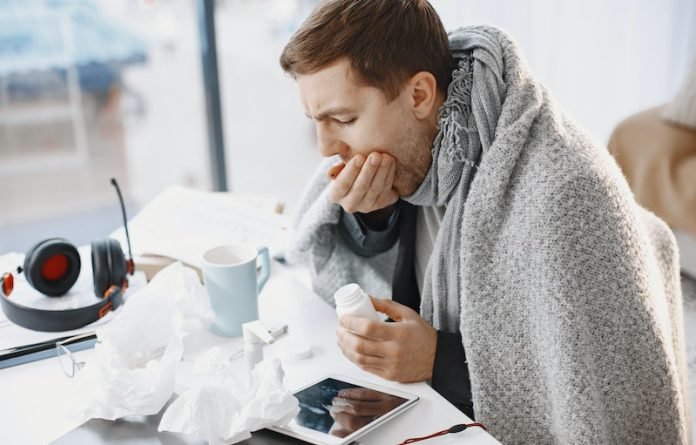
A new study conducted in the UK has discovered that patients hospitalized with COVID-19 experience sleep disruption, which may be linked to their breathlessness.
The study analyzed data from 38 institutions across the UK and was presented at the European Congress of Clinical Microbiology & Infectious Diseases.
The team found that 62% of participants admitted to the hospital with COVID-19 experienced sleep disruption, which was likely to persist for at least 12 months.
The study is the first to highlight the association between two post-COVID condition symptoms: breathlessness and sleep disruption.
The study found that patients hospitalized with COVID-19 slept for an average of one hour longer than matched participants who were hospitalized for any cause, but their sleep patterns were less regular.
Participants with sleep disturbance were also more likely to have anxiety and muscle weakness, both of which are common post-COVID-19 condition symptoms.
The finding suggested that sleep disruption could directly drive breathlessness, but that reduced muscle function and increased anxiety, which are recognized causes of breathlessness, could partially mediate the association between sleep disturbance and breathlessness.
The study authors believe that targeting sleep disruption by reducing anxiety and improving muscle strength could alleviate breathlessness, but further investigation is needed.
The study was conducted using data from the hospitals taking part in the PHOSP-COVID study between March 2020 and October 2021.
PHOSP-COVID is a consortium from across the UK researching long-term health outcomes for patients hospitalized with COVID-19.
Sleep quality was assessed using subjective measures that were self-reported by 638 patients to researchers.
It was also measured objectively in another 729 patients, who wore devices similar to smartwatches that measured nighttime activity levels.
Both measures consistently revealed a higher prevalence of sleep disturbance in people who had been hospitalized with COVID-19 compared with matched controls from the UK Biobank who had been hospitalized for any cause.
The impact on sleep from hospitalization due to COVID-19 was irrespective of critical care admission.
The team believes that the findings suggest that sleep disturbance could be an important driver of post-COVID-19 breathlessness because of its associations with reduced muscle function and anxiety.
They believe that interventions targeting poor sleep quality might be used to manage symptoms and convalescence following COVID-19 hospitalization, potentially improving patient outcomes.
How to sleep well if you have a long COVID
If you are experiencing disrupted sleep patterns as a result of long COVID, there are several things you can do to improve your sleep:
Establish a consistent sleep schedule: Go to bed and wake up at the same time every day, even on weekends. This helps regulate your body’s internal clock, making it easier to fall asleep and wake up.
Create a sleep-conducive environment: Make sure your bedroom is cool, dark, and quiet. Use comfortable bedding and consider investing in blackout curtains, earplugs, or a white noise machine if outside noise is a problem.
Avoid stimulating activities before bed: This includes things like watching TV, using electronic devices or engaging in stressful activities. Instead, wind down with relaxing activities like reading, taking a warm bath, or practicing meditation.
Limit caffeine and alcohol: Both caffeine and alcohol can disrupt sleep, so try to limit your consumption of these substances, especially in the hours leading up to bedtime.
Exercise regularly: Exercise has been shown to improve sleep quality, so try to get regular exercise during the day. However, avoid vigorous exercise within a few hours of bedtime as this can be too stimulating.
Talk to your healthcare provider: If you are experiencing persistent sleep disturbances related to long COVID, it’s important to talk to your healthcare provider. They may be able to offer specific recommendations or refer you to a sleep specialist.
If you care about lung health, please read studies about why Viagra may be useful in treating lung diseases, and scientists find herbal supplements to treat lung cancer.
For more information about health, please see recent studies about gum disease linked to impaired lung function, and results showing extracts from wild plants can inhibit the COVID-19 virus.
The study was conducted by Dr. John Blaikley et al and published in The Lancet Respiratory Medicine.
Copyright © 2023 Knowridge Science Report. All rights reserved.



